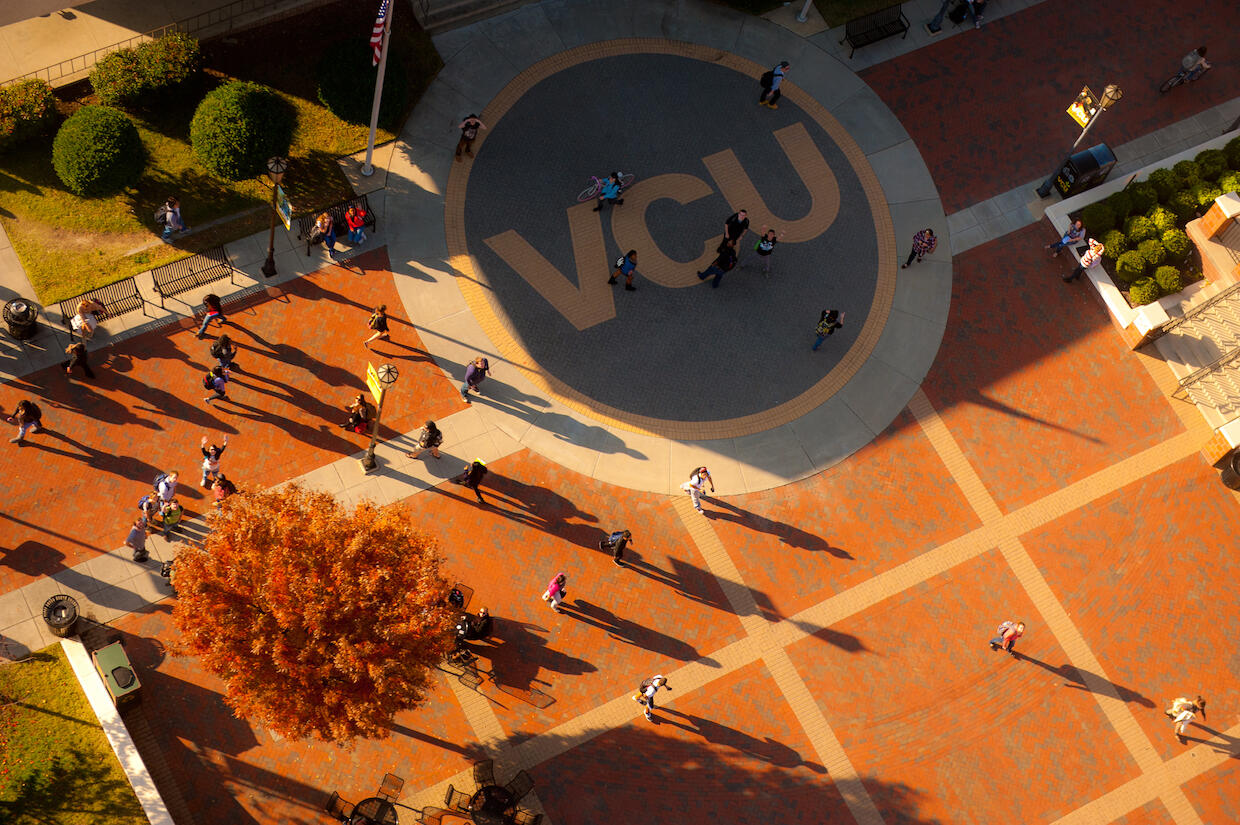
July 17, 2024
VCU partners with Harvard to provide scholars in Ukraine with an academic lifeline
Share this story
Virginia Commonwealth University and Harvard University’s Davis Center for Russian and Eurasian Studies are launching a collaboration that will assist select scholars displaced by the Russia-Ukraine war as they continue their academic work.
The VCU-Davis Center Non-Resident Academic Associates (VCU-DC NRAA) program, which launched July 1, provides its fellows with virtual access to a variety of VCU’s information resources and librarian liaison services to support their research under wartime conditions.
As part of the one-year program, the fellows will also be matched with VCU departments that are working on similar research, creating the opportunity for potential joint research and programming for students.
“In many cases, regular access to these resources at the scholars’ home universities has been interrupted, either because their cities have been occupied or because Russian attacks on Ukraine’s energy and other infrastructure have degraded power and internet services,” VCU scholar Judyth Twigg said. “This VCU-Harvard virtual affiliation, taking advantage of VCU’s world-class research materials and services, will provide an intellectual lifeline for these scholars so that they are not cut off from access to resources that are essential to their work.”
Twigg, Ph.D., a professor in the Department of Political Science in VCU’s College of Humanities and Sciences, is an expert in global health, with a particular focus on Russia and Ukraine. She serves as a trustee of the Eurasia Foundation and a member of the Council on Foreign Relations.
To put together the VCU-DC NRAA program, Twigg worked with Daniel Epstein, Ph.D., assistant director of the Davis Center’s Scholars Without Borders program, which works to rebuild scholarly communities disrupted by the war.
The program’s first cohort includes nine scholars across an array of disciplinary fields, with three each from the humanities, social sciences, and physical and natural sciences. The scholars are:
- Ihor Dvorkin, associate professor in the departments of History of Science and of Ukrainian and Cultural Studies at the National Technical University Kharkiv Polytechnic Institute, whose research interests span the memorialization of World War II in Ukraine, Jewish and Holocaust studies, memory studies and museum studies.
- Alla Fridrikh, associate professor in the Department of Philology at the Rivne State University of the Humanities, whose research focuses on teaching and learning the English language in emergencies.
- Oleksandr Kondratenko, professor in the Department of Applied Mechanics and Environmental Protection Technologies at the National University of Civil Defense of Ukraine (Kharkiv), whose research explores the improvement of environmental safety of internal combustion engines for emergency rescue vehicles.
- Iryna Liashenko, associate professor in the Department of Foreign Languages at Sumy State University, whose research involves online language learning with a focus on English language-learning among Ukrainian doctoral students.
- Maryna Maslova, associate professor in the Department of Foreign Languages at the University of Zaporizhzhia, who studies discourse linguistics, text interpretation and linguistics of text using mathematical methods, and neurolinguistics.
- Denis Sheka, professor in the Department of Nanophysics of Condensed Media in the Educational Scientific Institute of High Technologies at the Taras Shevchenko National University of Kyiv, whose research focuses on the theory of nonlinear phenomena in nanomagnets and the theory of curvilinear magnetism.
- Viktoriia Strilets, professor and head of the Department of International Economics at the Poltava University of Economics and Trade, who studies digital entrepreneurship, the digital transformation of small and medium enterprises, and the development of a digital business ecosystem in Ukraine.
- Natalia Tsybuliak, associate professor in the Department of Pre-school, Special and Social Education at Berdyansk State Pedagogical University, whose research areas include mental health and academia and the value of teaching and learning in higher education institutions in times of crisis and war.
- Ohla Zibtseva, assistant professor of landscape architecture at the National University of Life and Environmental Sciences of Ukraine, whose work focuses on sustainable development of green space systems in small towns in the Kyiv region.
Since Russia’s full-scale invasion of Ukraine in early 2022, VCU has partnered with Ukrainian institutions and colleagues through several initiatives.
In the spring semesters of 2023 and 2024, the Kyiv School of Economics delivered a three-credit course – Ukrainian Politics and Society – to VCU political science students, offering a unique opportunity to interact with a team of Ukrainian faculty and government experts teaching virtually from Kyiv during wartime. Additionally, in spring 2023 through the U.S. Congressional Office for International Leadership, VCU’s Global Education Office hosted a delegation of experts on detection and removal of land mines from the State Emergency Service of Ukraine.
Subscribe to VCU News
Subscribe to VCU News at newsletter.vcu.edu and receive a selection of stories, videos, photos, news clips and event listings in your inbox.










